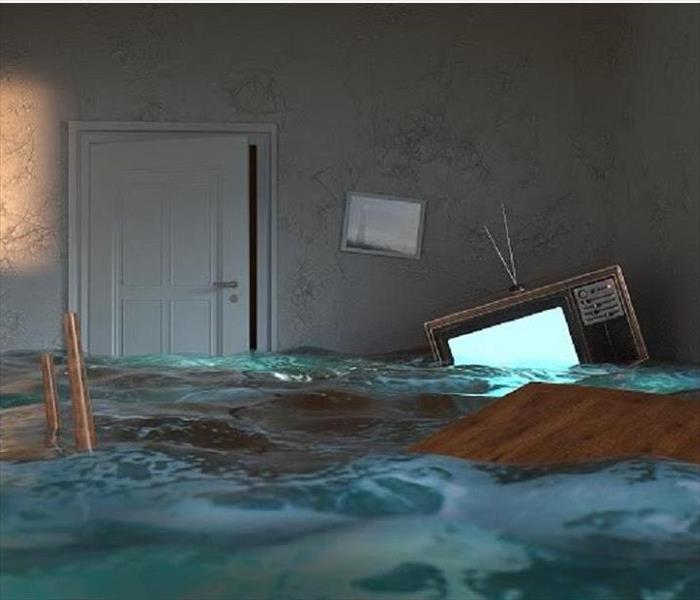Electrical Damage After Flooding
12/18/2019 (Permalink)
 If you experience any damage after a storm, contact SERVPRO of East Onondaga. Our goal is to help make it “Like it never even happened.”
If you experience any damage after a storm, contact SERVPRO of East Onondaga. Our goal is to help make it “Like it never even happened.”
Flood water comes from just about anywhere: outside your home, inside your home, and even directly from the ground. When your home is exposed to floodwater, it experiences major damage fast, including to the electrical system inside your home.
Water and electricity do not mix, and a wet system can cause major injury or even death. If you want to better protect your family and home after a flood, check out these three common types of electrical damages.
- Appliances
Some appliances may be salvageable after a flood. The first step, however, is to wait until the water has receded and the power is off to the entire home. Then you can begin drying the appliance. However, you should not use it until after it has been inspected by a professional who can determine if the water damage created a risk of fire or electrocution.
When it comes to a refrigerator, the effort necessary to salvage the fridge may be too much work. Not only do you have to ensure the electrical components are intact, but contaminants may also be inside the fridge's water dispenser and/or ice maker. This will need to be cleaned, and the filter will need to be replaced, especially if your area is under a boil alert due to contaminated water from the flood..
Another problem with appliances like refrigerators is insulation. Fridges use insulation to help keep the items inside naturally colder without using so much energy. If this insulation gets exposed to water, it will soak up a lot and take a long time to dry, increasing the risk of mold and future electrical damage or shocks.
- Electrical System
Most of your home's electrical system is inside the walls. If water gets inside the walls, it can damage wires and other electrical components. This increases the risk of a fire because even a small spark can ignite the wall's insulation, giving the fire lots of fuel to spread. Damage to wires can also cause electrocution.
For this reason, you need to ensure your entire electrical system is off before you go inside your home, especially before you walk into any standing water. Standing water alone can be dangerous because of the bacteria and viruses it may contain, but even if you've turned off the power to the room, standing in the water puts you at risk of shock if other wires are live.
To protect yourself from potential electrical shock, your local utility company will have to come and physically remove your electrical meter from the socket, which fully removes you from the power grid. Only then will your home be completely void of electricity, but you'll still need a professional to examine the system.
- Outlets
Outlets are often positioned near the floor, which increases the risk of water damage during flooding. Any outlet that gets wet can begin to corrode. You may think the outlet is working fine, but behind the scenes, rust is spreading, causing the outlet to slowly lose power, making it obsolete.
Similarly, trying to use a wet outlet puts you at a high risk of electrocution, especially if the house is still wet and has standing water.
When in doubt, if an outlet may have been exposed to flood water, you should consider having it replaced. Luckily, you won't break the bank doing so because outlets are often an affordable purchase. Plus, the work involved is minimal, so you won't have to pay a fortune in labor costs. Last, many newer outlets are better, safer, and more energy-efficient.
If your home was exposed to flood water, it may have a lot of underlying damage that can put you and your family at risk for major injury or accidental death. If you would like to know more about repairing your home after a flood, contact us at SERVPRO of East Onondaga today.






 24/7 Emergency Service
24/7 Emergency Service